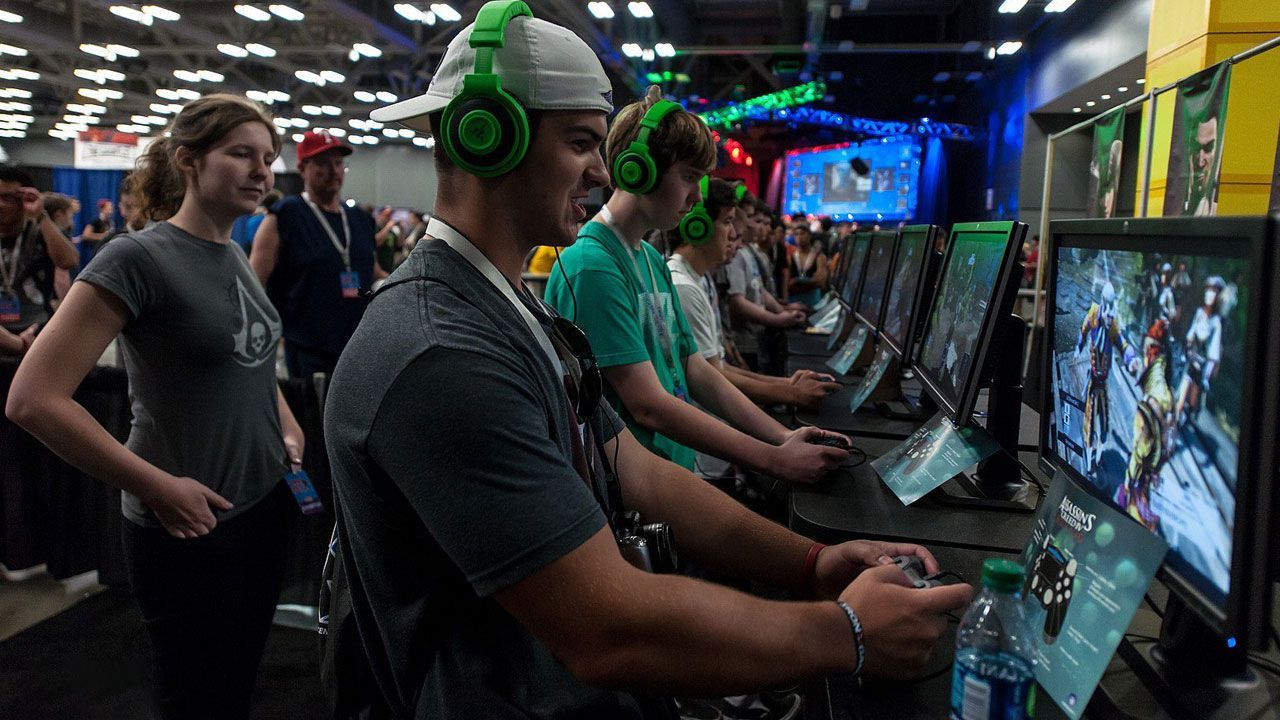The Evolution of Gaming: A Journey Through Time and Pixels
Opinion by Esha on Feb 19, 2024
In the ever-evolving entertainment world, video games have carved out a significant niche that transcends age, culture, and geography. This digital form of leisure has grown from simple, pixelated games to complex, immersive worlds that offer not just entertainment but also avenues for education, social interaction, and even professional competition. This article delves into the transformative journey of gaming, exploring its past, present, and potential future while highlighting its impact on society and culture.

The Humble Beginnings
The story of gaming dates back to the 1950s and 1960s, with the creation of simple computer games like "Tennis for Two" and "Spacewar!". These games laid the foundational stone for a new form of entertainment, which was then popularized in the 1970s with the introduction of arcade games. "Pong," a simple tennis simulation game, became an instant hit, marking the beginning of the video gaming industry.
These early games were characterized by their straightforward gameplay and pixelated graphics, offering a new and exciting form of entertainment that was vastly different from anything else at the time.
The Rise of Home Gaming Consoles
The 1980s and 1990s witnessed the advent of home gaming consoles, which brought video games into the living rooms of millions around the world. Companies like Nintendo, SEGA, and Sony revolutionized the gaming industry with iconic consoles like the NES, SEGA Genesis, and PlayStation.
These devices not only improved the visual and auditory experience of games but also introduced a variety of genres, from platformers and role-playing games to simulations and sports games. The era also saw the birth of legendary franchises such as "Mario," "Sonic the Hedgehog," and "Final Fantasy," which remain beloved by gamers to this day.
The Digital and Online Revolution
The turn of the millennium brought with it significant technological advancements that further transformed the gaming landscape. The rise of the internet and digital distribution platforms like Steam made purchasing and playing games easier than ever, while online multiplayer games created global communities of gamers. Games like "World of Warcraft" and "League of Legends" became cultural phenomena, offering players not just games to play but worlds to inhabit. This era also saw the rise of mobile gaming, with games like "Angry Birds" and "Candy Crush" making gaming more accessible to a broader audience.
The Current Landscape: Diversity and Innovation
More innovations and diversity than ever exist in the gaming industry today. Gamers may now enter the gaming world like never before, thanks to virtual reality (VR) and augmented reality (AR) games, pushing the limits of immersion.
By experimenting with novel storylines and gameplay elements, independent developers are adding new and distinctive experiences to the gaming industry. In addition, the popularity of game streaming services like Twitch and YouTube Gaming has given rise to a brand-new genre of entertainment in which watching other people play games is just as fun as actually playing them.

Gaming as a Catalyst for Positive Change
In addition to its entertainment value and societal impact, gaming has emerged as a powerful tool for positive change, with significant research focusing on its application in education and healthcare. Educational institutions are incorporating gamification elements into their curriculums, leveraging games to enhance learning and engagement among students based on research findings. Similarly, healthcare research has shown that serious games, designed for purposes beyond entertainment, can offer therapeutic benefits for rehabilitation and mental health treatment.
This distinction highlights the importance of differentiating video gaming from other online activities, such as online betting, emphasizing responsible gaming and its potential to contribute positively to various aspects of society, including education, health, and social inclusion.
The Societal Impact of Gaming
Beyond entertainment, video games have had a significant impact on society and culture. They have become a medium for storytelling, education, and social commentary, tackling issues from mental health to environmental conservation. Gaming communities have also shown incredible acts of charity, raising millions of dollars for various causes through events like Games Done Quick. Moreover, the competitive gaming scene, or esports, has grown into a legitimate and lucrative industry, with professional players and teams competing in global tournaments for substantial prizes.
Conclusion
As we look to the future, it's clear that video games will continue to play a significant role in our lives. Advancements in technology and AI promise even more immersive and realistic gaming experiences, while the community and cultural aspects of gaming are likely to grow even stronger.
The journey of gaming, from simple pixelated screens to complex virtual worlds, reflects not just the evolution of technology, but also the human desire for play, exploration, and connection. As we continue to push the boundaries of what games can be, one thing remains certain: the world of gaming is far from reaching its final level.
Contributor, NoobFeed
Latest Articles
No Data.

